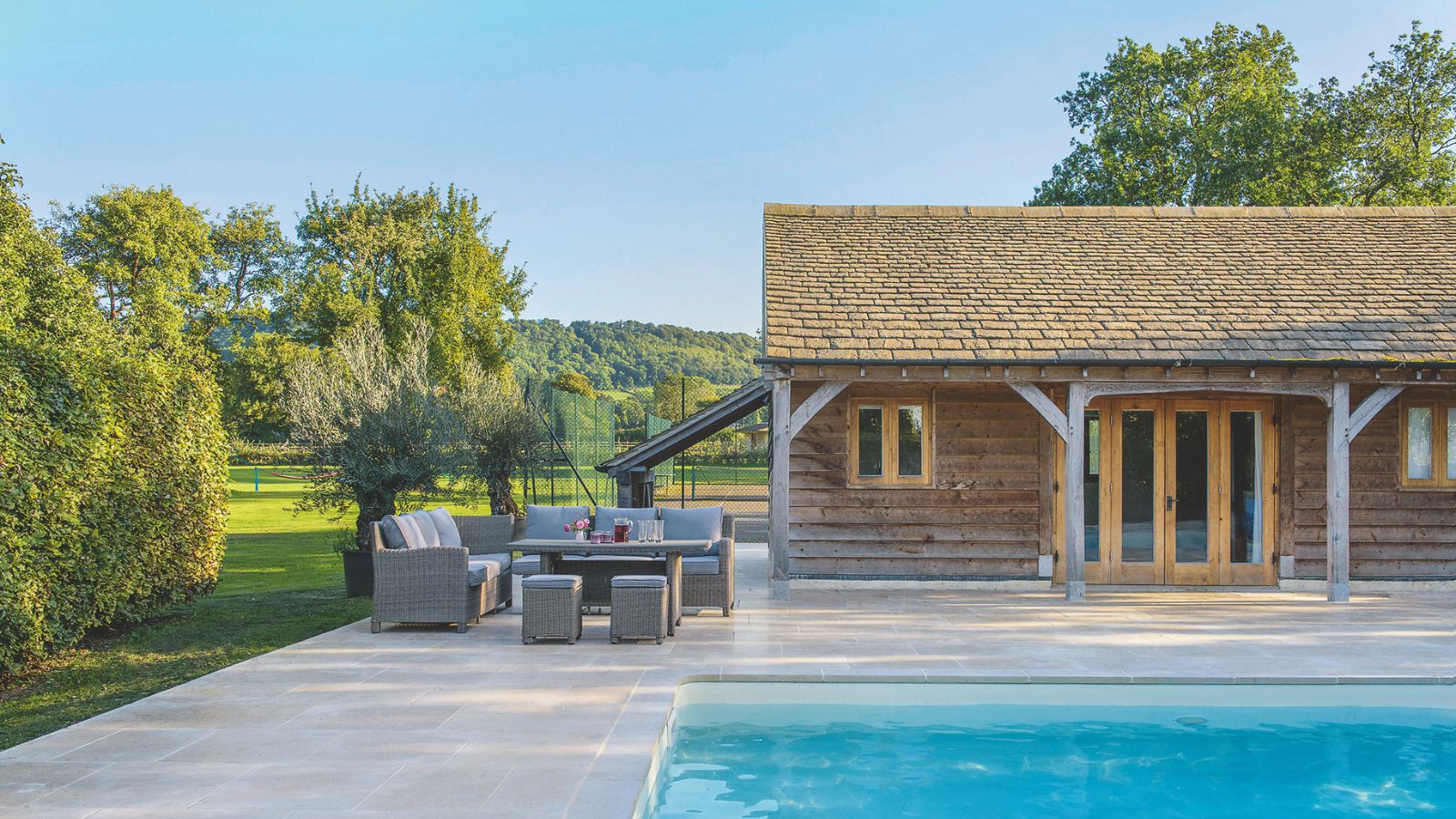
If you've been wondering how to clean patio pavers without a pressure washer, the arrival of spring is the perfect time to swot up on the solutions.
With more time spent outside as milder weather finally arrives, sprucing up your outdoor space shoots up the priority list for many. Here, our professional cleaners share their step-by-step advice for getting your patio summer-ready without the need for powerful jets.
Whilst a pressure washer is often touted as a convenient way to get the job done, many people don't own one, have the budget or desire to rent one, or have concerns about doing more harm than good to delicate or winter-battered surfaces when completing essential outdoor cleaning jobs in spring.
How to clean patio pavers without a pressure washer
Step 1: Prepare the space
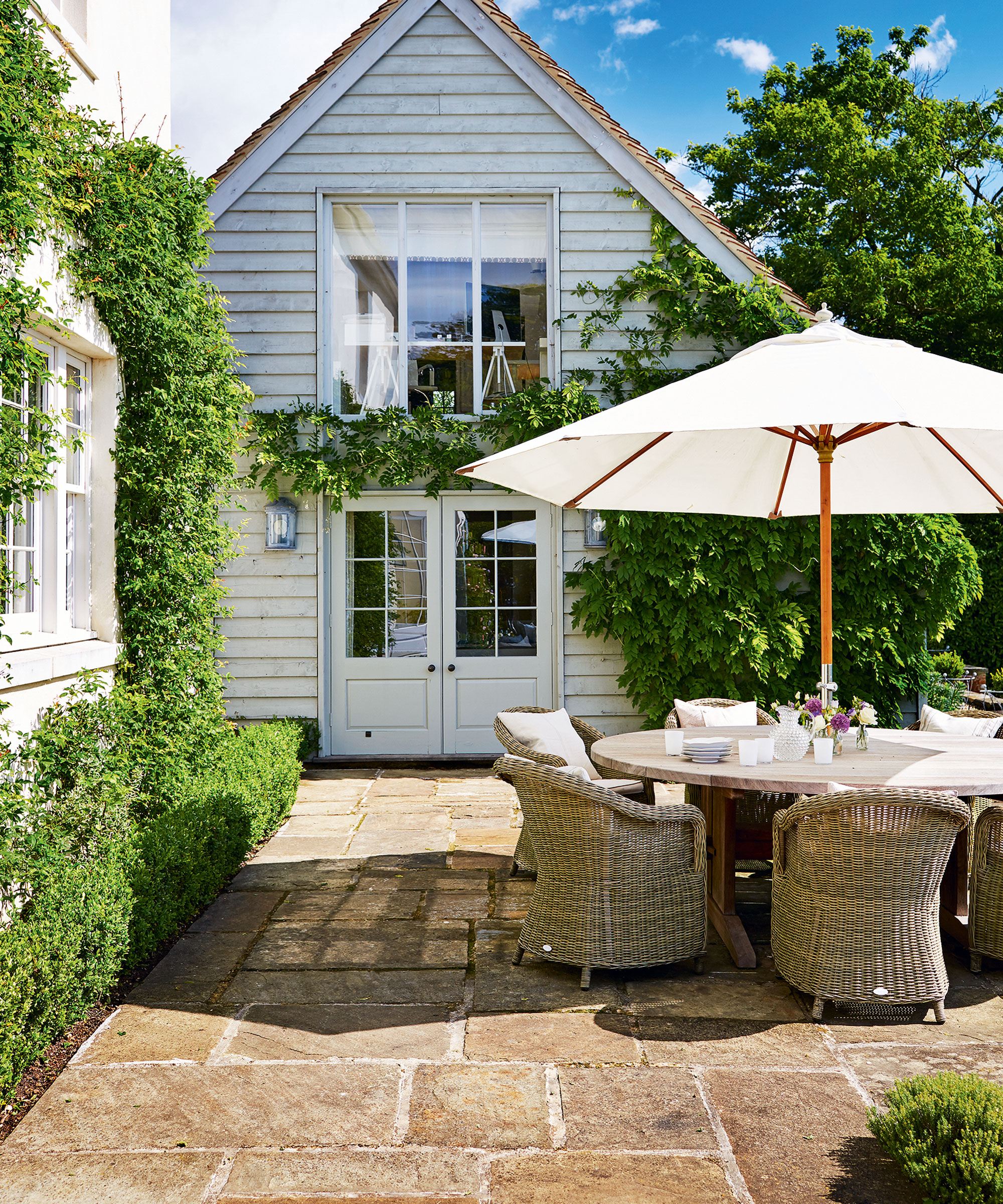
This essential outdoor cleaning task might seem a little daunting, but as Rhonda Wilson, quality lead cleaner at FreshSpace Cleaning assures, 'Cleaning patio pavers without a pressure washer will surely feel like a workout, but at least it's still doable!'
To begin, she advises, clear your patio entirely, moving all plant pots, outdoor furniture and other backyard clutter out of the way, before sweeping the space to remove dirt, leaves and pebbles from the surface.
'For the first sweep, a heavy duty broom like the Rubbermaid Commercial Products Heavy-Duty Corn Broom available at Amazon is better to use, because the fibers just have enough flex to trap lightweight bits, and enough stiffness to push heavier stuff, like pebbles, without sending them flying,' she advises, which is definitely a patio cleaning mistake to avoid.
For any dry leaves that may have accumulated over the colder months, Rhonda recommends misting them lightly with water, using a spray bottle such as the Bar5F Plastic Spray Bottle available at Amazon, to add weight.
'It helps them clump together so they move as a group, making it easier to collect them in one go,' she explains.
At this stage, we also recommend taking the time to get rid of weeds and moss. Some gardening gloves, such as the COOLJOB Gardening Gloves available at Amazon, will make things much more comfortable.
And, while everything is removed from your patio, it might likewise be a good idea to do some backyard decluttering. See if you can trash, repair, donate or sell decluttered items, as if something didn't get used last year, it's probably time to let it go.
All prices were correct at the time of publication.
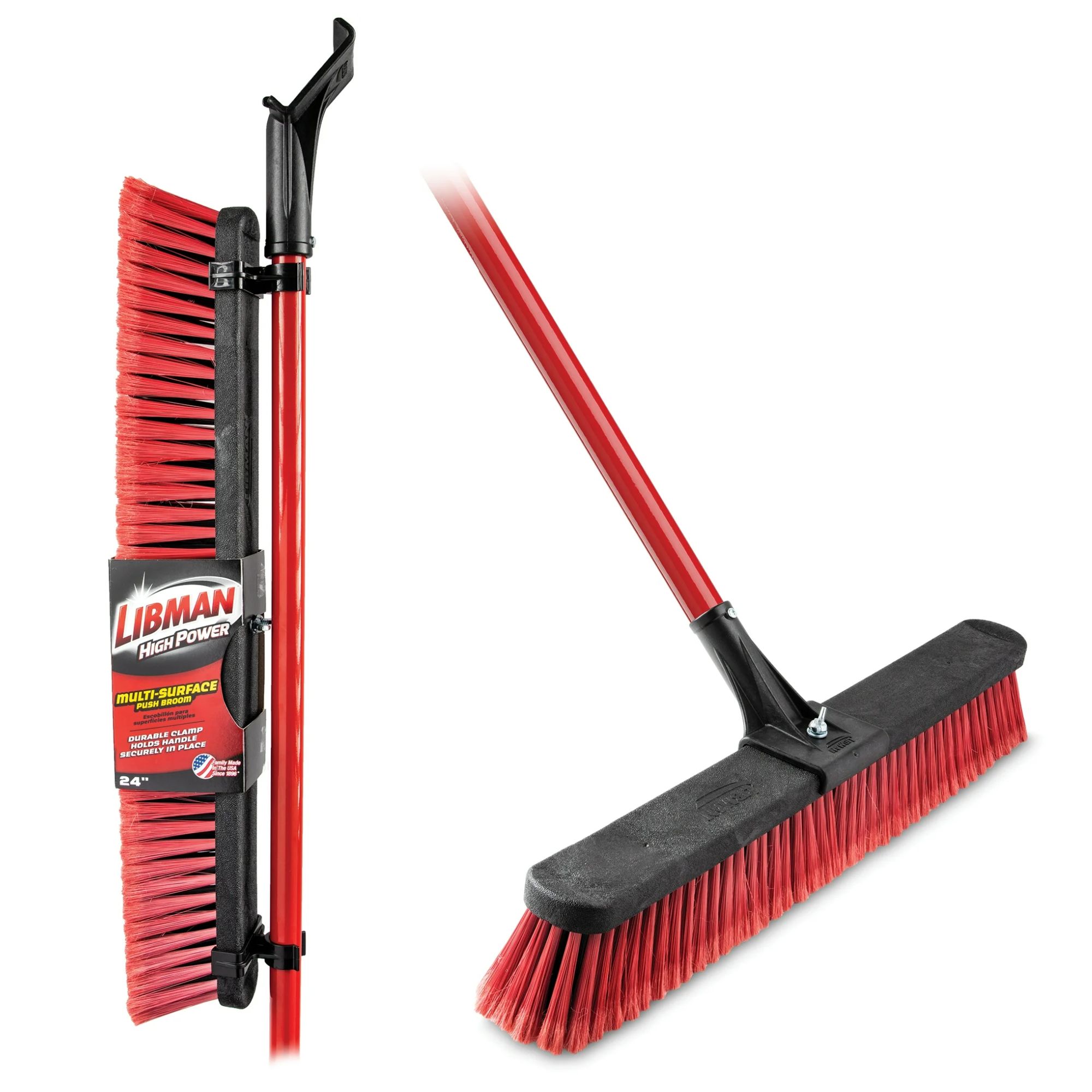
This heavy-duty cleaning broom is made with eco-friendly materials, including recycled PET fibers from water bottles, with a sturdy construction and durable bristles.
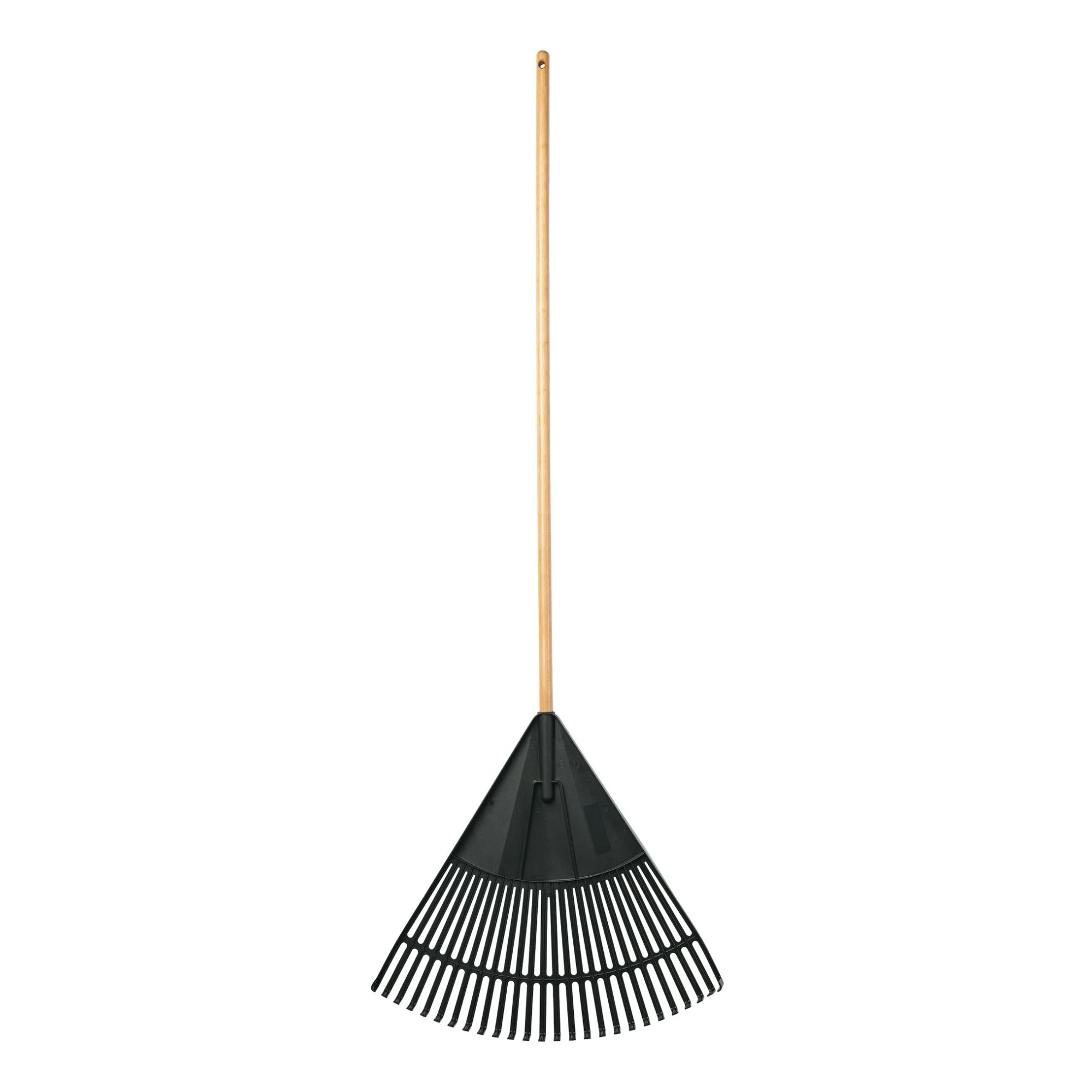
This garden rake is easy to use and clean, perfect for gently removing leaves and debris from your patio pavers without leaving scratches or damage.
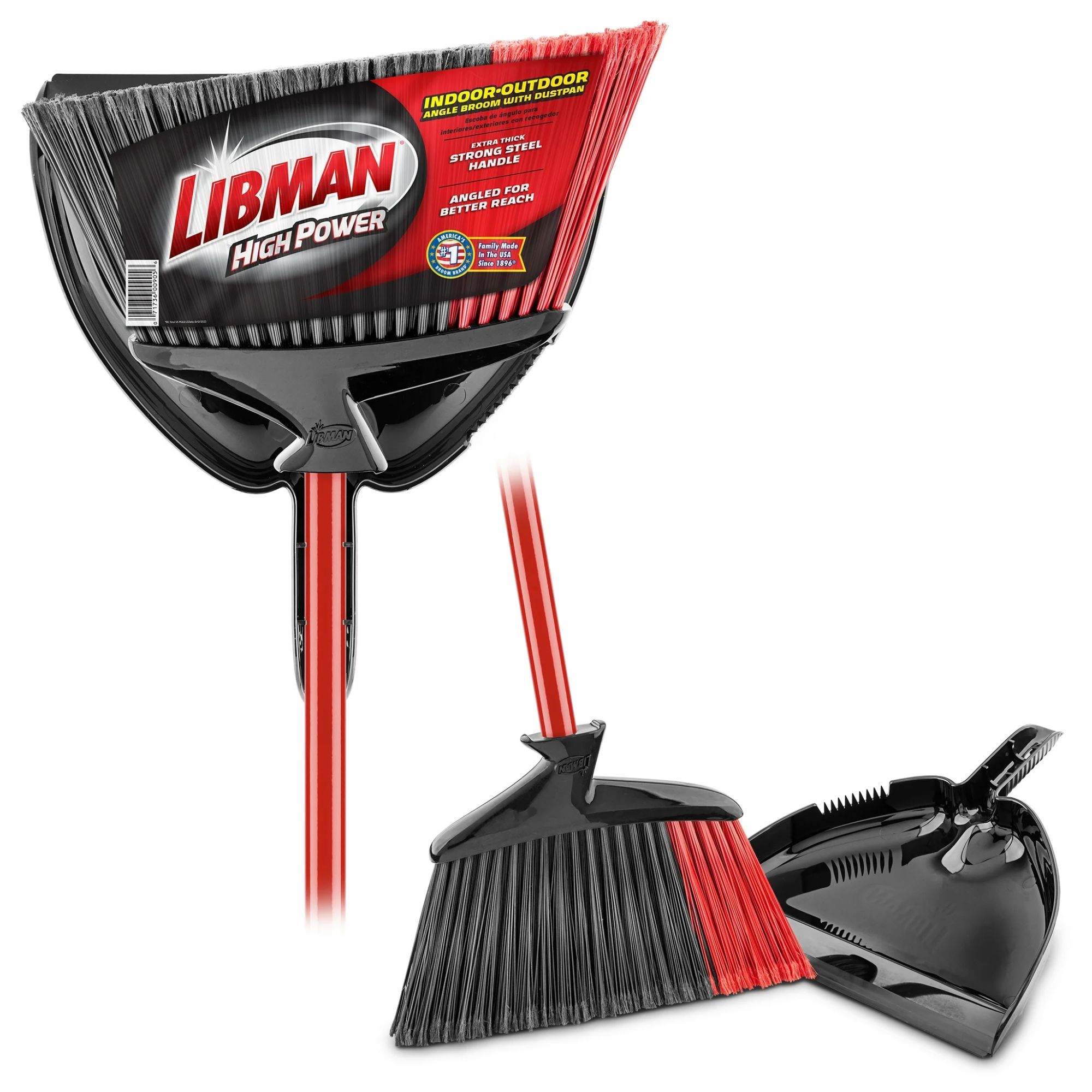
Getting into hard-to-reach corners and crevices with this angled brush, suitable for use on various surfaces including concrete, brick, and wood.
Step 2: Wash the pavers and rinse
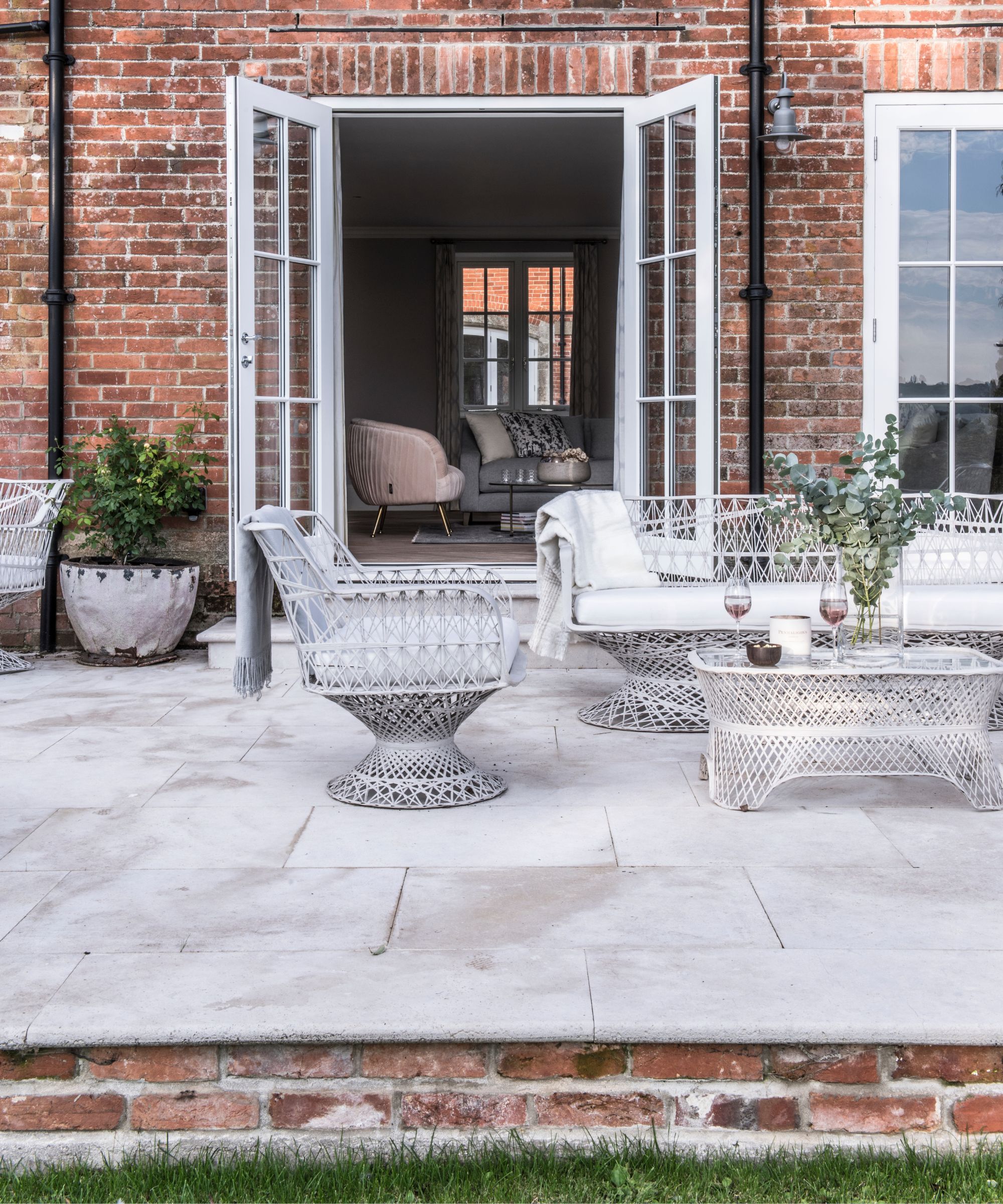
Before you can begin washing your pavers, thoroughly drench them first.
'You can attach a high-pressure nozzle and focus on the gaps to dislodge dirt,' suggests Rhonda. 'If your patio is really dirty or muddy, I suggest wearing a rain gear or poncho, so you're protected from dirt flying everywhere.'
Once soaked, the most classic and easiest method to tackle the cleaning is to use warm water mixed with dish soap, such as the Seventh Generation Dish Soap Liquid Free & Clear available at Walmart, which is all-natural and won't cause any discoloration, and a stiff-bristled brush.
This step takes some elbow grease, but an afternoon of cleaning is well worth it for a summer of cookouts and al fresco lunches with your patio looking immaculate. For any significant stains, Rhonda adds, 'Put a few drops of Dawn Ultra Liquid Dish Soap available at Walmart on the surface to remove oil stains, moss or any discolorations. Then scrub with a Stiff Bristle Brush,' available at Amazon.
In some more extreme circumstances, you might need something a little heavy-duty, particularly if the winter months have left your patio stained and moldy. A specialist cleaner, such as Wet & Forget Outdoor Cleaner Concentrate available at Walmart, can be sprayed onto the surface of your pavers with a pump-up garden sprayer, such as the Chapin Lawn and Garden Pump Pressured Sprayer available at Amazon, and left. With a bleach-free and non-acidic formula, this will remove mold, moss and grime without any additional scrubbing.
If you prefer not to use any harsh chemicals, you can also try cleaning with vinegar, by using the Great Value Distilled White Vinegar available at Walmart.
Simply dilute the vinegar with water in a bucket, such as the Sterilite Spout Pail, also available at Walmart, in a 50:50 solution, before applying the solution to the paving slabs with a firm brush. Gretchen Boyd, a cleaning professional at a NYC House Cleaners, says a mixture of white vinegar and water is good for particularly tough stains, so if you've tried using dish soap and water, and some marks still won't budge, this might help shift them, whilst also being an excellent, cost-effective way to clean your home without harming the planet.
Whichever method you choose, ensure that you rinse your patio thoroughly after scrubbing, to remove any leftover residues and dirt, before leaving the space to dry thoroughly. For this reason, a warm overcast spring day is ideal for ticking off this task, as the cleaning solution will dry, but not so quickly that is leaves behind soapy streaks.
'Once dry, check for any remaining stains,' adds Karina Toner, cleaning expert and operations manager at Spekless. 'If stubborn spots remain, repeat the cleaning process, or use a specialized paver stain remover for deep stains like algae or mildew.'
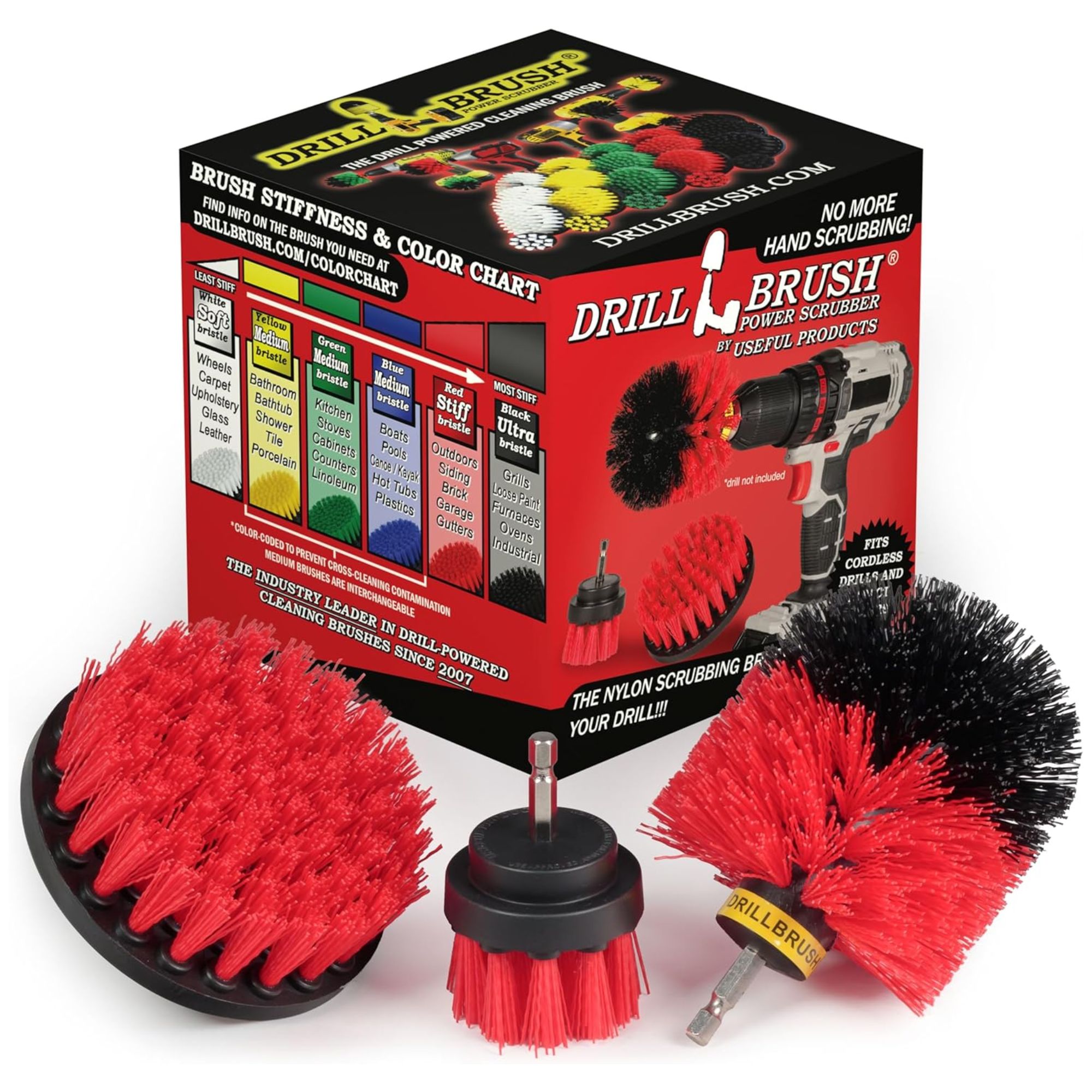
Level up your scrubbing power with these drill attachment brushes, which work well on concrete, stone, sidewalks and driveways.
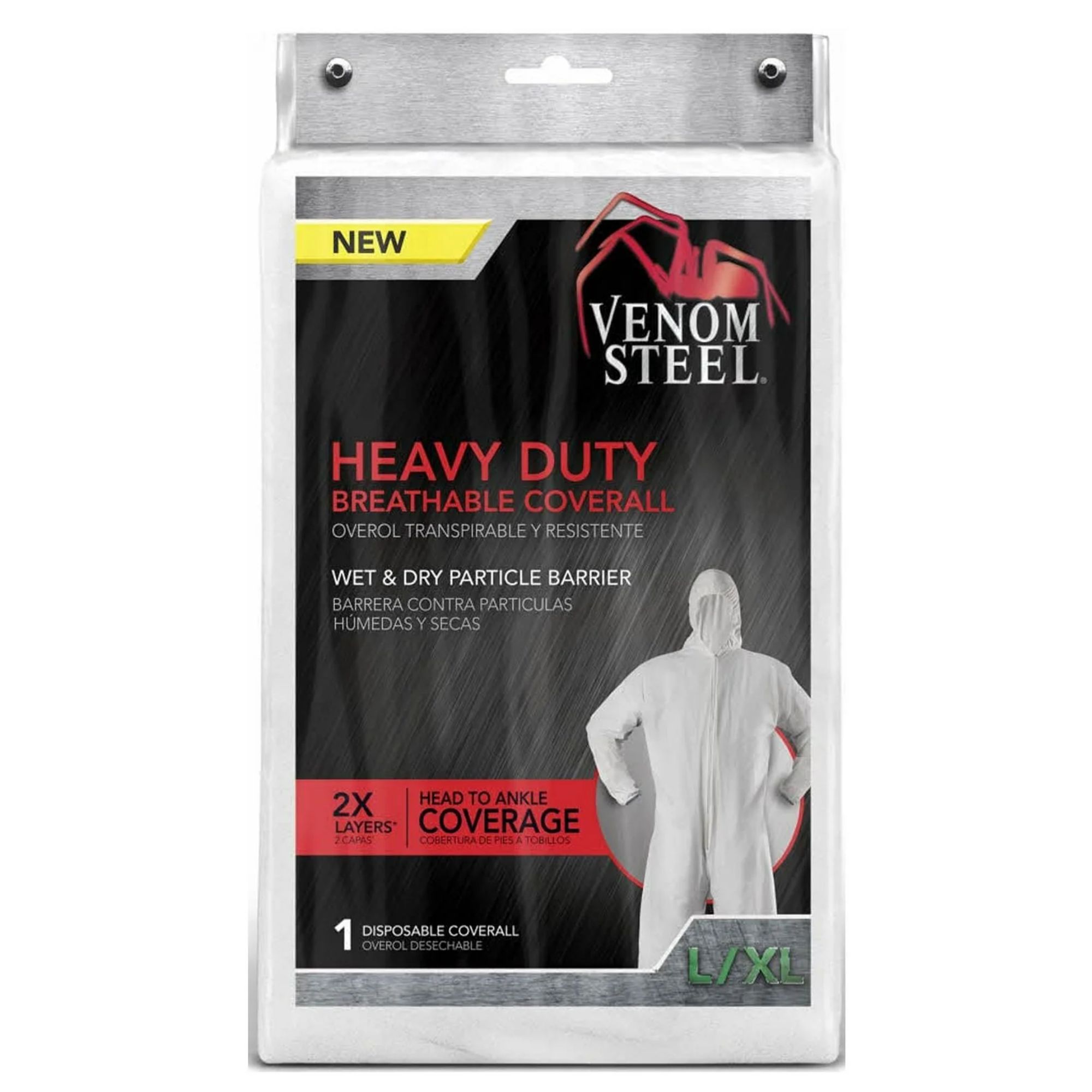
Protect your clothing and skin when cleaning with this affordable, heavy-duty coverall, which can be thrown away after use.
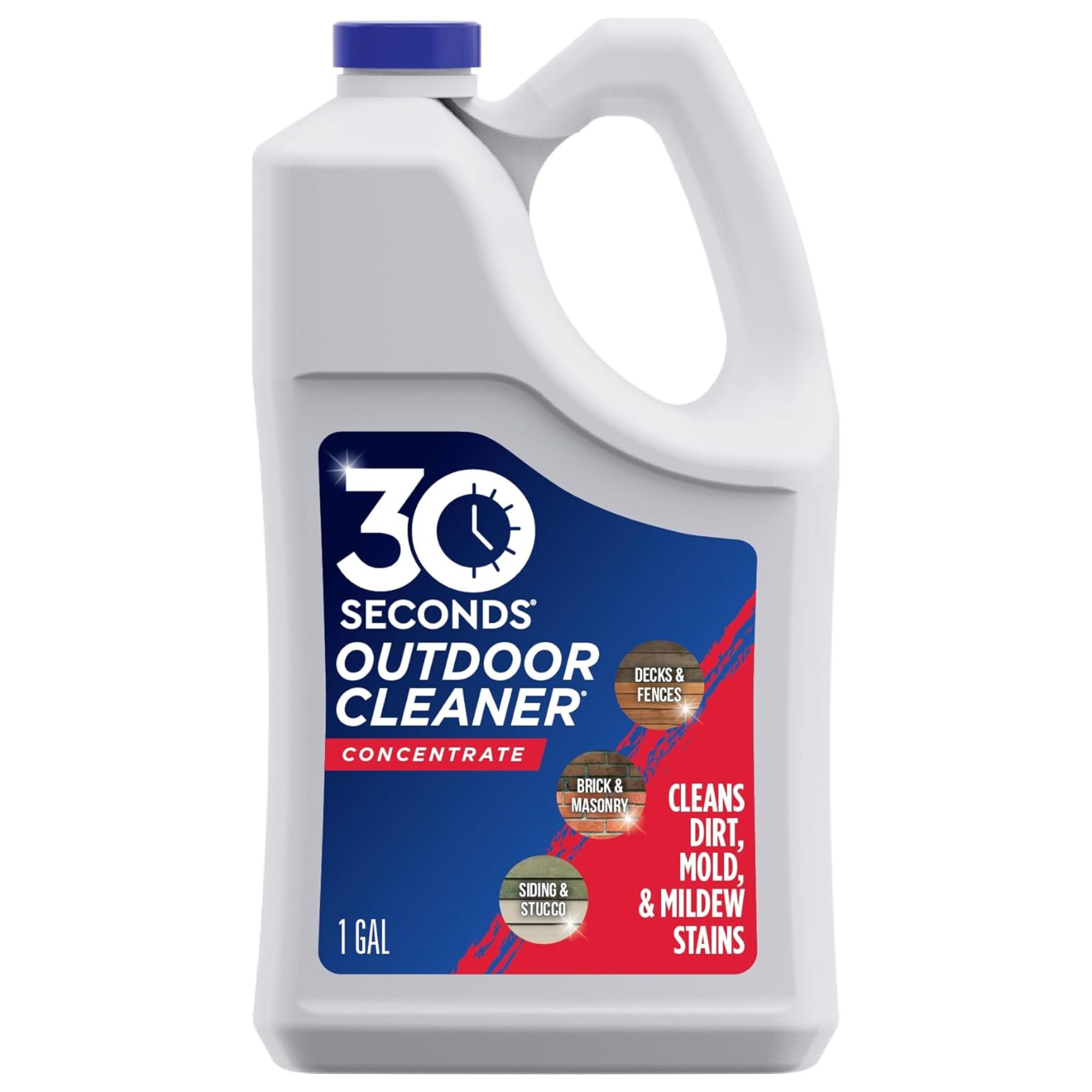
This outdoor cleaner is plant and lawn-safe, and removes stains and organic growth on your outdoor surfaces with immediate results.
Step 3: Add a sealant

Finally, once dry, Rhonda recommends spraying a herbicide, such as the Compare-N-Save Herbicide available at Amazon, on the pavers and the cracks between them to kill any hidden weed roots.
Then, adds Gretchen, apply a protective sealant to the slabs. This gives extra shine, protects slabs from future staining and weathering, and generally keeps the patio looking its best.
'You can opt for a wet-look one if you want a richer color, or matte for a more natural finish,' says Rhonda.
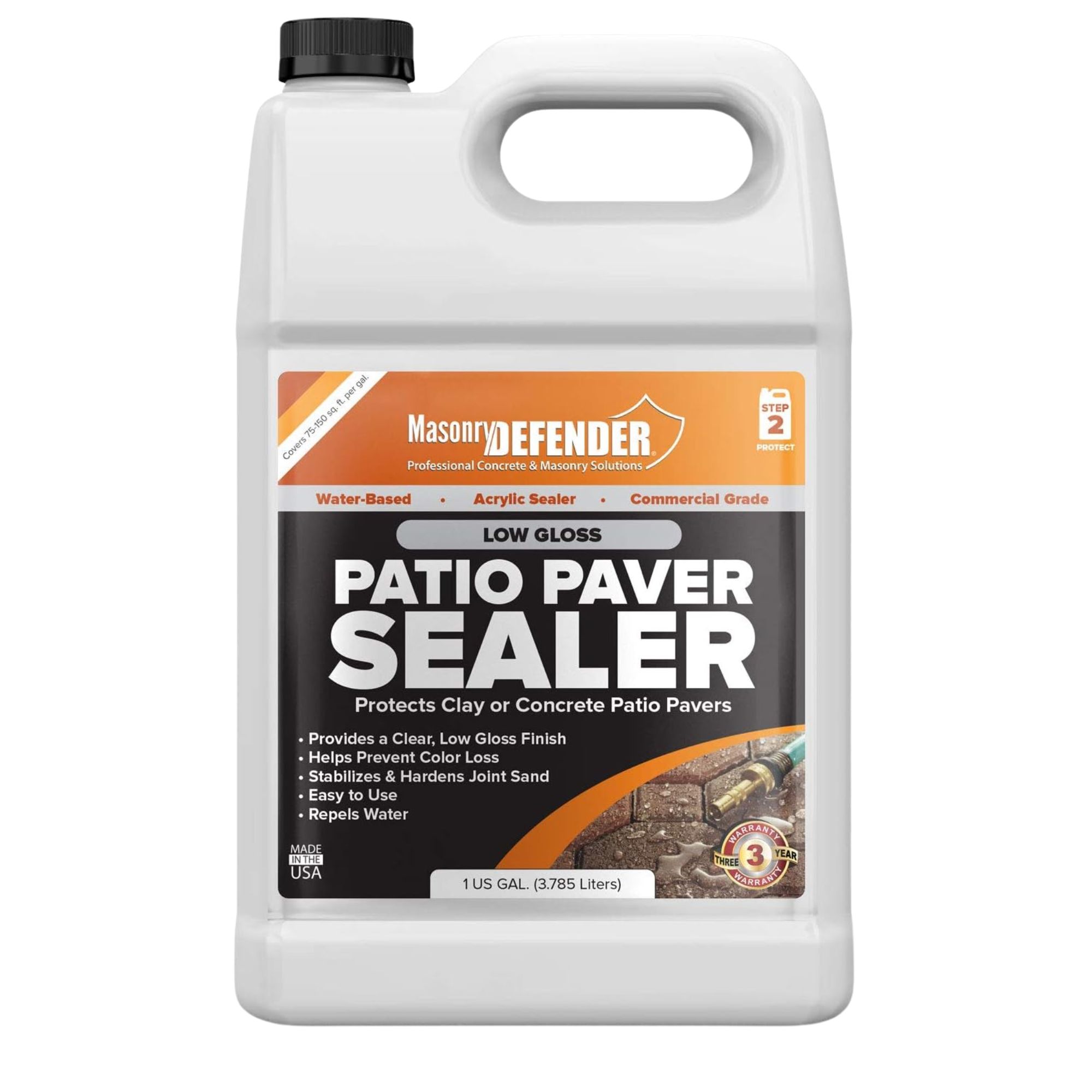
This patio sealant provides a rich, low-gloss shine to enhance the look of your patio while preventing color loss without the risk of yellowing. It's also VOC-compliant.
Meet our experts
FAQs
Does bicarbonate of soda clean patios?
Much like vinegar, cleaning with baking soda is a reliable and non-toxic way to clean your patio pavers, without having to resort to harsh chemicals. We recommend the ARM & HAMMER Pure Baking Soda available at Walmart, which can also be used for cooking and deodorizing.
Taking time annually to refresh their pavers is one of the things people with clean patios always do, but it's not the only thing. For example, furniture should also be protected to keep it looking its best.
If you're on an outdoor sprucing spree, don't forget to remove leaves and other winter debris to avoid leaks inside, such as when cleaning the gutters.







